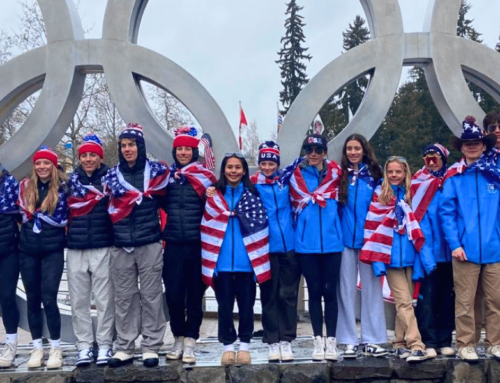NCAA Skiing Committee submits response to proposed championship cuts
On July 9, the NCAA Skiing Committee and coaches association submitted a response to the NCAA Division I proposal that suggests cutting NCAA Championship participation in order to cut costs for the organization. These cuts would inherently affect NCAA ski racing, both alpine and cross country, although they are intended to create financial boundaries for all participating leagues in the NCAA.
The NCAA Division I Championships Finance Review Working Group was created a few years ago in order to serve as a primer for member feedback on recommendations affecting how Division I championships are funded and administered. The 50-page proposal outlines four topics in detail that the working group believes will effectively cut costs for the organization. The four topics under review include concepts and recommendations for creating championships, managing travel and per diem, managing championship bracket/field size, and managing future budget requests.
Currently, 148 athletes can qualify for NCAA Championships in collegiate ski racing. The new NCAA working group proposal asks for championship fields to be reduced to 10% of its total participating individuals. For ski racing, this would mean the current number of athletes that could qualify for NCAA Championships would shrink from 148 athletes to 88 athletes. While a majority of the working group’s proposal aims to manage larger, more lucrative collegiate sports such as football and basketball, the wording of the proposed rules would also affect collegiate skiing, as it is considered a Division I sport at many institutions.
If these cuts were to go into effect, only 22 athletes would be able to compete per discipline, disrupting the traditional format where the top 30 athletes are flipped for the second run. Two athletes would be able to score per school rather than the usual three, and fewer schools would be able to maintain representation at the year’s final races. According to Peter Dodge, the head men’s alpine coach for Dartmouth University, 34 institutions field collegiate ski teams across Divisions I, II, and III. In 2020, 23 schools were represented at the NCAA Championships. If the participating field is cut back to 88 athletes, Dodge foresees only the top four or five ski schools qualifying for championships, putting the integrity of the sport at risk.
“Almost every team that sponsors skiing can have a hope or possibility of having at least an individual at NCAA finals and potentially an All-American or Champion,” said Dodge. “But if we cut back, basically all those schools with one or two people at the Championship would probably be left out. That would have been devastating and would have had a cascading effect because some schools would drop the sport and therefore further reduce our numbers and our percentages.”
The NCAA Skiing Committee and coaches association comments on the proposal offer solutions that would help reduce costs, without reducing participation numbers. Some ideas the committee members have explored include shortening the event to two or three days or eliminating travel or training days to cut back on costs. Their goal is to retain their full participation number of 148 student-athletes. Originally, the committee had considered reducing the level to 120, but have reached the conclusion that they can achieve appropriate cost-cutting in other ways.
The committee backed their comments further by emphasizing that few institutions in the NCAA have the means to upkeep alpine and cross country ski programs, and therefore must be valued or pose a risk to the sport. Dodge and his fellow committee members argued that skiing requires snow, and very few schools lie in the appropriate climate or region proximal to alpine venues and cross country courses, that allow for collegiate ski programs to exist. With the support of the United States Olympic and Paralympic Committee and the U.S. Ski & Snowboard, the committee argued the loss of these programs would prove detrimental to the American skiing pipeline and North America’s Olympic development.
“What’s important to us is the racing experience, the quality of the competition, the surface, the rules, and the ski competition maintain integrity and is still a high-quality ski competition,” said Dartmouth Men’s Head Coach Peter Dodge. “If we lose a few frills that’s fine its much better than sacrificing athletes or programs.”
The NCAA Division I Championships Finance Review Working Group has not yet clarified when a final decision will be made as to whether these rules and regulations will be implemented. Comments from the public and participating members closed Friday, July 9.





















